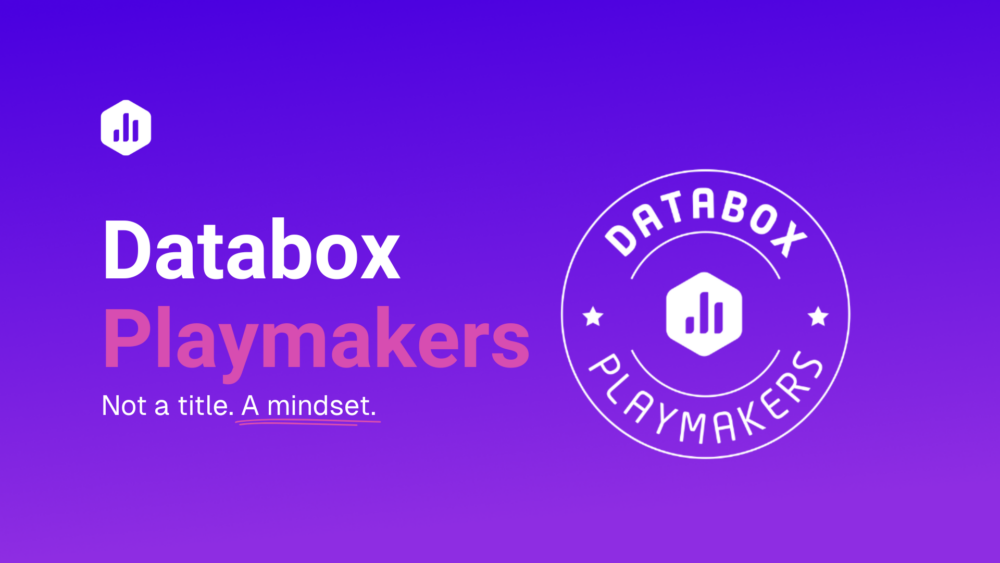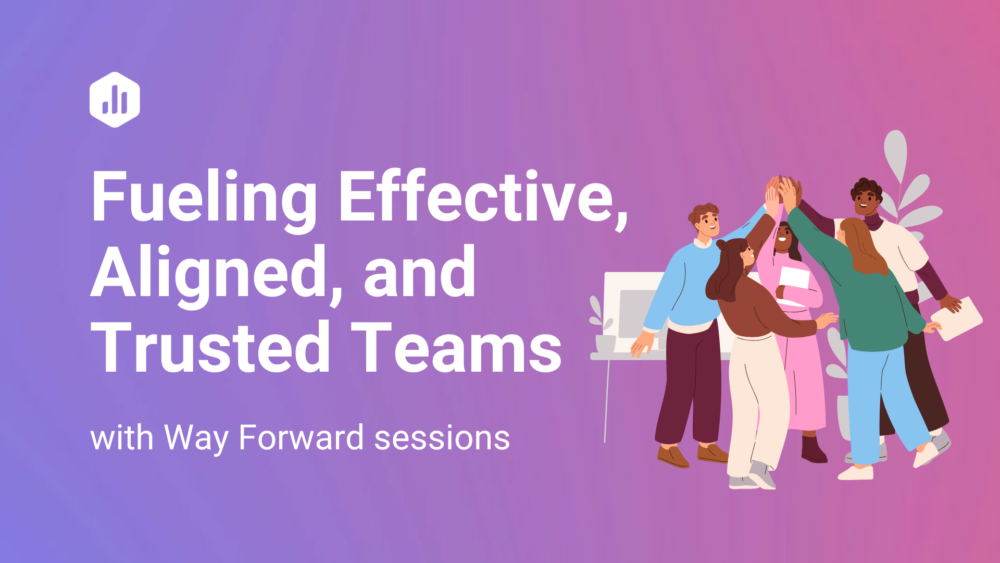Table of contents
Growing as a company involves a myriad of elements, but ultimately, it comes down to the practices and routines that teams have. These habits have a great impact on boosting team performance and engagement, which helps the company move ahead together. Fostering a high-performance culture means creating a space where team members do their best because they are engaged, feel valued, and keep learning. This gives our people a greater purpose and instills a continuous improvement mindset and a dedication to the organization’s mission that drives performance. This blog breaks down the way we empower teams through autonomy and ownership, inspiring a ripple effect of knowledge-sharing and impactful practices with the help of Employee Net Promoter Score (eNPS) Surveys.
Welcome to a workplace culture where inspiration meets impact and high-performing teams redefine the boundaries of success.
Understanding Employee Experience through eNPS
Employee Net Promoter Score (eNPS) is a key metric that we use at Databox to evaluate employee satisfaction and engagement, but it is also a tool that helps us empower teams and build a high-performing culture from the bottom up.
Let’s start at the beginning. eNPS essentially asks employees to rate the likelihood of recommending Databox as a place to work on a scale from zero to ten. According to their answers, the system generates a score by sorting ratings into three categories: promoters, neutrals, and detractors. In the end, the percentage of detractors is subtracted from the percentage of promoters, and the final score (which ranges from +100 to -100) represents a company’s eNPS score, showing how employees feel about working at Databox. Besides choosing the rating, over 90% of employees taking part in the survey also added comments explaining why they feel the way they do and which were the main promotors and detractors for them. Expanding on their feedback highlights the high level of engagement from our employees, demonstrating their commitment to making a meaningful impact. It’s evident that they feel Databox values their input and takes into consideration what they express. This has immense value as it gives insights beyond mere ratings, providing a window into the firsthand experiences of individuals working at Databox. It helps us explore the distinct facets that shape our culture, sheds light on areas of uniqueness, and pinpoints opportunities for improvement. Employees contribute detailed feedback on team dynamics, culture, work environment, workload, remote work options, benefits, policies, processes, and any other areas of consideration. That input is instrumental in shaping the ongoing evolution of Databox. To provide honest feedback, the answers are anonymous.
After the survey, leadership and the People and Culture team review their responses and schedule individual eNPS team discussions to discuss results, identify pain points highlighted in the survey, and collectively view them as opportunities for enhancing performance, engagement, work practices, and behaviors. The aim is to proactively address challenges, turning them into action items that serve as stepping stones for a more dynamic and engaging work environment. The true value of these discussions lies in their capacity to facilitate changes inside teams and make strategic improvements that will ultimately steer our teams and company toward success. After teams define their solutions, they cross-functionally share them with other teams as a good practice.

Empowering Teams Through eNPS Discussions
Databox conducts biannual eNPS surveys and provides a comprehensive report to the entire company after each one. Following the survey, management thoroughly reviews employee feedback, generating action items to enhance the overall work experience. However, accountability for team engagement and performance extends to teams, leaders, and individuals. Consequently, the People and Culture team organizes eNPS team discussions to inspire reflection and explore ways individuals can contribute to satisfaction and engagement within their scope of work. This approach ensures alignment and fosters a culture of open communication.

Initiatives that Drive Team Effectiveness
Since each team deals with unique challenges, they possess the power and responsibility to commit to small changes within their field of work that they believe can positively impact their overall success. These changes are determined during team discussions, where members are encouraged to delve deeply and identify ways to enhance their team dynamic, habits, and practices. The commitments they devise are subsequently shared with the entire team during a session called “Sharing Team Commitments.” This not only serves as inspiration for other teams to explore similar changes but also fosters a culture of knowledge-sharing, giving this initiative an added value. Moreover, it solidifies a commitment to continuous improvement and underscores the accountability each team member has for the success of their team.
To put this idea into perspective, we are sharing the initiatives from Databox teams that have had the most impact on team performance, engagement, and success.
Way Forward Team Workshop by the People & Culture team
With the desire to increase team effectiveness, the People & Culture team introduced an annual Way Forward Team Workshop, helping them move forward with purpose and connection. During these extensive sessions, the team identifies their stakeholders, engages in in-depth discussions about the challenges they encounter, collaboratively sets actionable items, formulates quarterly initiatives aligned with both team and company objectives, sets priorities, clarifies roles and responsibilities, explores individual strengths and weaknesses, and leverages this comprehensive information to propel forward successfully with a shared sense of purpose.The impact includes better coordination among team members, increased clarity in setting individual goals, united progress, and strengthened team connections—all contributing to improved overall efficiency.

Mentoring by Engineering teams
Recognizing the challenge of limited professional development opportunities within the team, Engineering teams initiated a Mentoring program to address this gap. After pairing team members with a mentor, they meet for 30 minutes every two weeks to delve into discussions on topics that the mentee is responsible for choosing.
The impact of this mentoring relationship is substantial, covering a range of areas such as discussing technical details of implementations and relevant projects, brainstorming complex technical solutions, validating ideas, sharing knowledge, exploring new technologies, and fostering an environment where everyone can grow technically and develop their potential with the right guidance. Moreover, the mentor serves as a role model, providing valuable insights and support to help shape the mentee’s professional journey. Even though such activities can quickly become scarce due to our fast-paced work environment, we are aware that investing in the growth of our people is crucial. Therefore, we encourage our team members to utilize such initiatives to the fullest extent possible.
Agile Retrospectives by the Data Science team
Recognizing the need for enhanced project evaluations and team collaboration, the Data Science and Data Engineering team addressed this challenge by introducing regular retrospectives for past projects. Starting out with an enlightening session on retrospectives, the team familiarized themselves with diverse methods and approaches, empowering them to choose the most suitable type for their needs and making the process fun and engaging at the same time. After a while, retrospectives have become an integral part of both project and quarterly evaluations.
The impact of this practice was identifying strengths and weaknesses, determining action items for future improvements, and fostering knowledge-sharing among team members. Opting for innovative retrospectives like the Lego retrospective helped create a relaxed atmosphere and strengthened connections among team members, contributing to better team collaboration.

Bi-weekly planning by the DevOps team
In response to challenges in resource planning, the DevOps team addressed the need for refined planning and progress tracking on the team level by introducing 14-day sprints and bi-weekly planning sessions. Each task in the sprint was connected to predefined objectives, with designated goal owners taking on responsibilities. In order to improve the evaluation of sprint plans, the entire team needed to be involved in the planning process.
The impact that sprints had on the team included increased visibility into outputs and outcomes, more efficient utilization of resources, and reduced overplanning. Regular check-in meetings helped them track complex projects and milestones, allowing quick decisions on changes and project direction. Additionally, the team observed that their standup meetings became more purposeful and meaningful.
Striving for a high-performance future
In conclusion, cultivating a high-performance culture goes beyond the pursuit of productivity. It is about fostering a deep sense of engagement and commitment within teams.
As explored throughout this blog, teams are the ones that can address their specific challenges and bring about change that can impact the entire organization. By giving teams an opportunity to discuss their potential to improve their performance, they get a chance to find solutions and commit to them.
The initiatives undertaken by different teams inside Databox play a pivotal role in shaping a culture that thrives on excellence. Furthermore, the emphasis on continuous knowledge sharing serves as the cornerstone for sustained growth and innovation. By consistently encouraging teams to commit to such initiatives, they enhance engagement, elevate performance, and cultivate a collaborative environment where every member feels valued and motivated. This collective effort ultimately propels Databox toward success.












